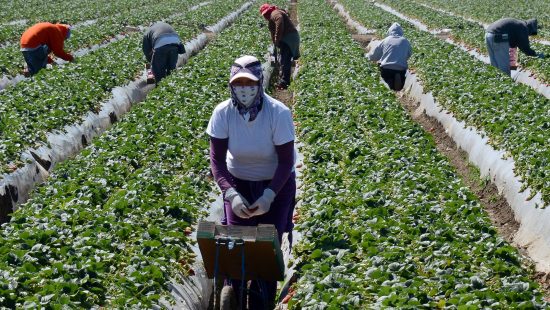Latinos account for half of the U.S. Border Patrol workforce. But it’s not self-hatred that drives them to work for agencies that often target their communities.
This insight is based on the research of David Cortez, an assistant professor of political science at the University of Notre Dame and published in an opinion article in USA Today.
According to the most recent publicly available data Cortez found, Latinos make up more than 50% of Border Patrol agents and 24% of ICE agents.
One of the key questions Cortez wanted to explore was why Latinos pursue jobs that can end up affecting their own families and communities.
“How do Latinos do this to their own people?” Cortez asked. “Is it self-hatred? A denial of their ethnic identity? Or do they believe that participating in the government’s exclusionary systems somehow strengthens their own claim to belonging in America — even to whiteness?”
But Cortez’s research found a different answer: for Latino agents, it’s primarily about the money.
“It’s time for those agents who know better (and I know you’re out there) to recognize their power. It’s time for them to say no”, wrote David Cortez.
What the agents say, according to Cortez.
In his research, Cortez found that most Latinos who choose to work in immigration enforcement do so for financial reasons. Personal ties to immigration experiences or opinions about undocumented immigration don’t seem to significantly influence the decision. Rather, money is the main reason they take the job — and, perhaps more importantly, the reason they stay in it.
One agent he interviewed admitted feeling a connection to the migrants he encountered, as fellow Latinos. He said he sometimes felt bad about working in immigration enforcement but emphasized that he needed to support his family. Switching to Spanish for emphasis, the agent said, “I stressed that this was the job I had chosen, so I had to do it.”
Another agent echoed the same sentiment. Although he acknowledged a contradiction between his identity as a Latino and his job as an immigration officer, he made it clear what his priorities were: despite any personal doubts, he would never risk losing the job — his family came first.
Cortez also points to the economic conditions in Texas, where Latinos make up 39% of the population but where 51% of the population lives in poverty.
In 2019, the average income for a Latino family was around $31,000, while the average starting salary for a Border Patrol agent was about $56,000.
Cortez calls for a shift — for agents to show greater empathy toward their communities and to respond to the harsh conditions in immigration detention centers.
“The moment calls for acts of moral objection — not just from the general public, but also from those responsible for enforcing the president’s cruel policies on the ground,” Cortez wrote years ago, in words that now seem prophetic. “It’s time for those agents who know better (and I know you’re out there) to recognize their power. It’s time for them to say no — to stand up for what is morally right rather than what is personally convenient. It’s time to ask themselves: how much is your humanity worth?”








